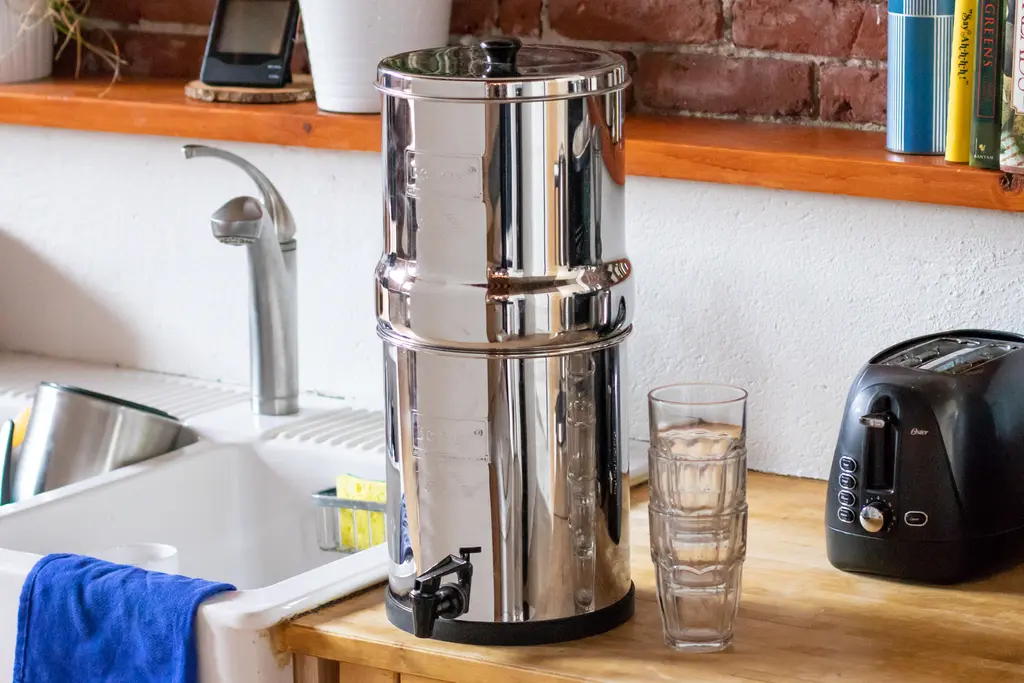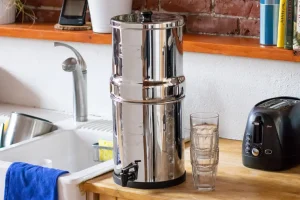Water is essential to life, and ensuring its cleanliness and safety is paramount. In recent years, Berkey water filters have risen in popularity due to their effectiveness in filtering out contaminants. However, these filters face a ban in California, sparking curiosity and concern among consumers. Why are Berkey water filters banned in California? This article delves deep into the reasons behind the ban, examining regulatory standards, health concerns, and the broader implications for consumers and water filtration products.
Reasons for the Ban on Berkey Water Filters
To understand why Berkey water filters are banned in California, it’s essential to explore the specific reasons and regulatory frameworks involved.
Concerns About Lead Contamination

One of the primary reasons for the ban is concerns about lead contamination. Lead is a toxic metal that can cause severe health problems, particularly in children. Even low levels of lead exposure can result in developmental issues and cognitive impairments.
California has stringent standards for lead levels in consumer products, including water filters. The state mandates that products must not only meet federal guidelines but also comply with Proposition 65, which requires businesses to provide warnings about significant exposures to chemicals that cause cancer, birth defects, or other reproductive harm.
Issues with Phthalate Presence
Phthalates are chemicals used to make plastics more flexible and harder to break. They are often found in consumer products such as toys, vinyl flooring, and even water filtration systems. Some phthalates have been linked to health concerns, including hormone disruption and reproductive issues.
California’s Proposition 65 also targets phthalates, requiring that products containing these chemicals carry warning labels. Berkey water filters have faced scrutiny over the presence of phthalates, leading to concerns about their safety and regulatory compliance.
Regulatory Environment in California
California is known for its rigorous environmental and consumer protection regulations. These laws are designed to protect public health and the environment, often setting stricter standards than those at the federal level.
Overview of California Water Quality Standards
California’s water quality standards are among the most stringent in the United States. The state ensures that drinking water is free from harmful contaminants through a combination of state regulations and adherence to federal guidelines established by the Environmental Protection Agency (EPA).
Explanation of Proposition 65
Proposition 65, also known as the Safe Drinking Water and Toxic Enforcement Act of 1986, requires businesses to provide warnings about significant exposures to chemicals that cause cancer, birth defects, or other reproductive harm. This law has far-reaching implications for various industries, including water filtration.
Role of NSF Certification in Water Filtration
The National Sanitation Foundation (NSF) is an independent organization that tests and certifies products to ensure they meet public health and safety standards. NSF certification is crucial for water filtration products as it provides consumers with confidence that the product effectively removes contaminants.
Berkey’s Response to the Concerns
Berkey has responded to the concerns raised by California’s regulatory environment, aiming to clarify their position and the efficacy of their products.
What Berkey Filters Are Designed To Do
Berkey water filters are designed to remove a wide range of contaminants, including bacteria, viruses, heavy metals, and other harmful substances. They are highly regarded for their ability to purify water from various sources, making them popular in both residential and outdoor settings.
Clarification on NSF Certification Status
One of the contentious points has been the NSF certification status of Berkey filters. While Berkey asserts that its filters meet or exceed NSF standards, they have not pursued NSF certification. This decision has led to skepticism and regulatory challenges, particularly in California.
Consumer Reactions and Alternatives
The ban on Berkey water filters has prompted various reactions from consumers and has also led to the exploration of alternative water filtration options.
Impact on Berkey Users in California
For existing Berkey users in California, the ban has created uncertainty and frustration. Many users have praised the filters for their effectiveness and are concerned about finding comparable alternatives that meet their needs and comply with state regulations.
Exploring Alternative Water Filtration Options
Given the ban, consumers are looking for alternative water filtration systems that comply with California’s strict regulations. Some alternatives to consider include:
- Reverse Osmosis Systems: These systems are highly effective in removing a wide range of contaminants, including lead and phthalates.
- Activated Carbon Filters: These filters are known for their ability to remove chlorine, volatile organic compounds (VOCs), and other chemicals.
- UV Purification: This method uses ultraviolet light to kill bacteria and viruses, providing an additional layer of protection.
Implications for Water Quality Standards
The ban on Berkey water filters highlights the broader implications for water quality standards and consumer safety.
Importance of Certification for Consumer Safety
Certification, such as NSF certification, plays a critical role in ensuring that water filtration products meet established safety and efficacy standards. Consumers rely on these certifications to make informed decisions about the products they use to ensure their water is safe to drink.
How the Ban Affects Perceptions of Water Filtration Products
The ban has influenced consumer perceptions of water filtration products, emphasizing the importance of transparency, regulatory compliance, and independent certification. It has also underscored the need for consumers to stay informed about the products they use and the regulations that govern them.
Future of Berkey Water Filters in California

Looking ahead, the future of Berkey water filters in California depends on various factors, including potential changes in regulatory compliance and the company’s strategic decisions.
Conclusion
The ban on Berkey water filters in California is a multifaceted issue involving health concerns, regulatory standards, and consumer safety. While Berkey filters are highly effective in removing contaminants, the lack of NSF certification and concerns about lead and phthalates have led to their prohibition in the state. Consumers must navigate these complexities to ensure they choose safe and effective water filtration options.
ALSO READ: Best Places to Invest in Real Estate in California
FAQs
A: Currently, the ban is specific to California due to its unique regulatory standards. Other states do not have the same restrictions.
A: While the sale and distribution are banned, using an existing Berkey filter is not explicitly prohibited. However, consumers should be aware of the concerns raised by the state.
A: Look for filters that are NSF certified and comply with Proposition 65 regulations. Research and verify the product specifications and certifications before purchasing.
A: Brands like Aquasana, Brita, and PUR offer NSF-certified filters that comply with California’s regulations.
A: Berkey has not indicated any immediate plans for NSF certification, but future changes in strategy could potentially address this issue.




